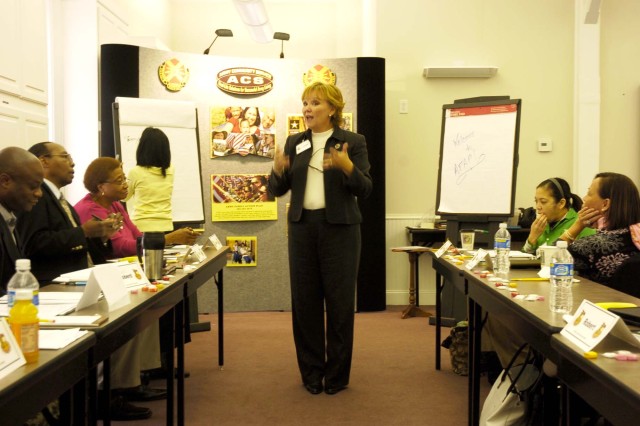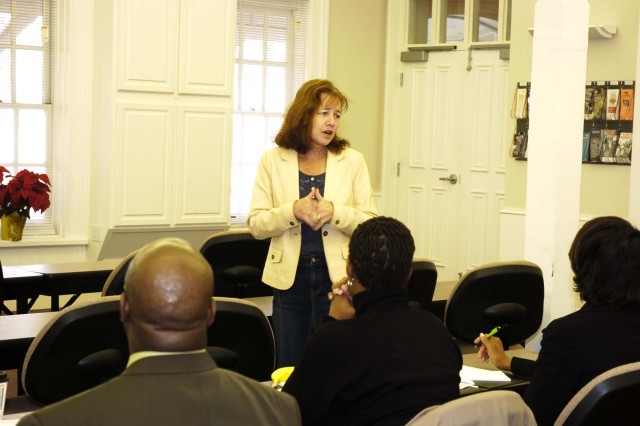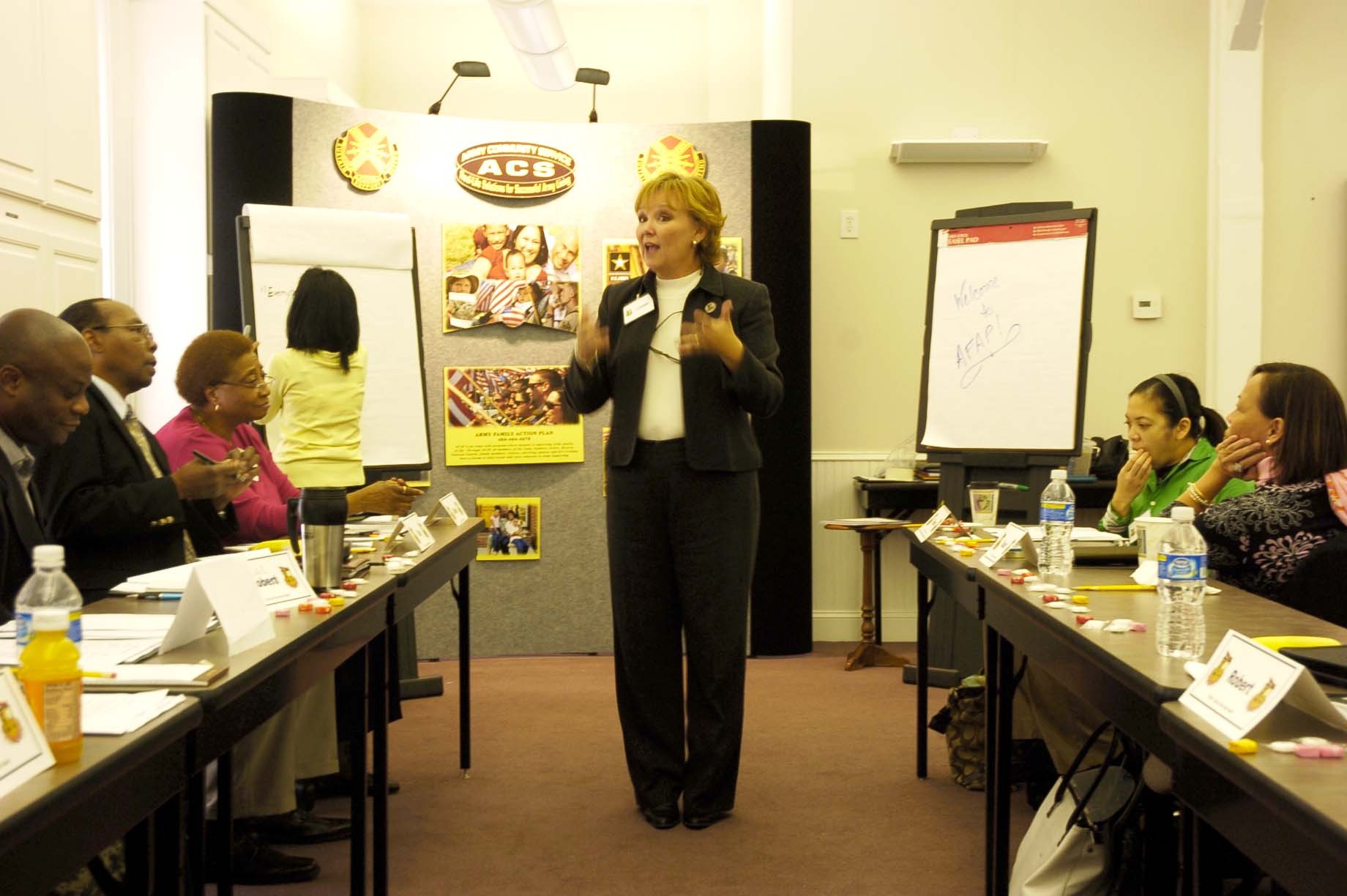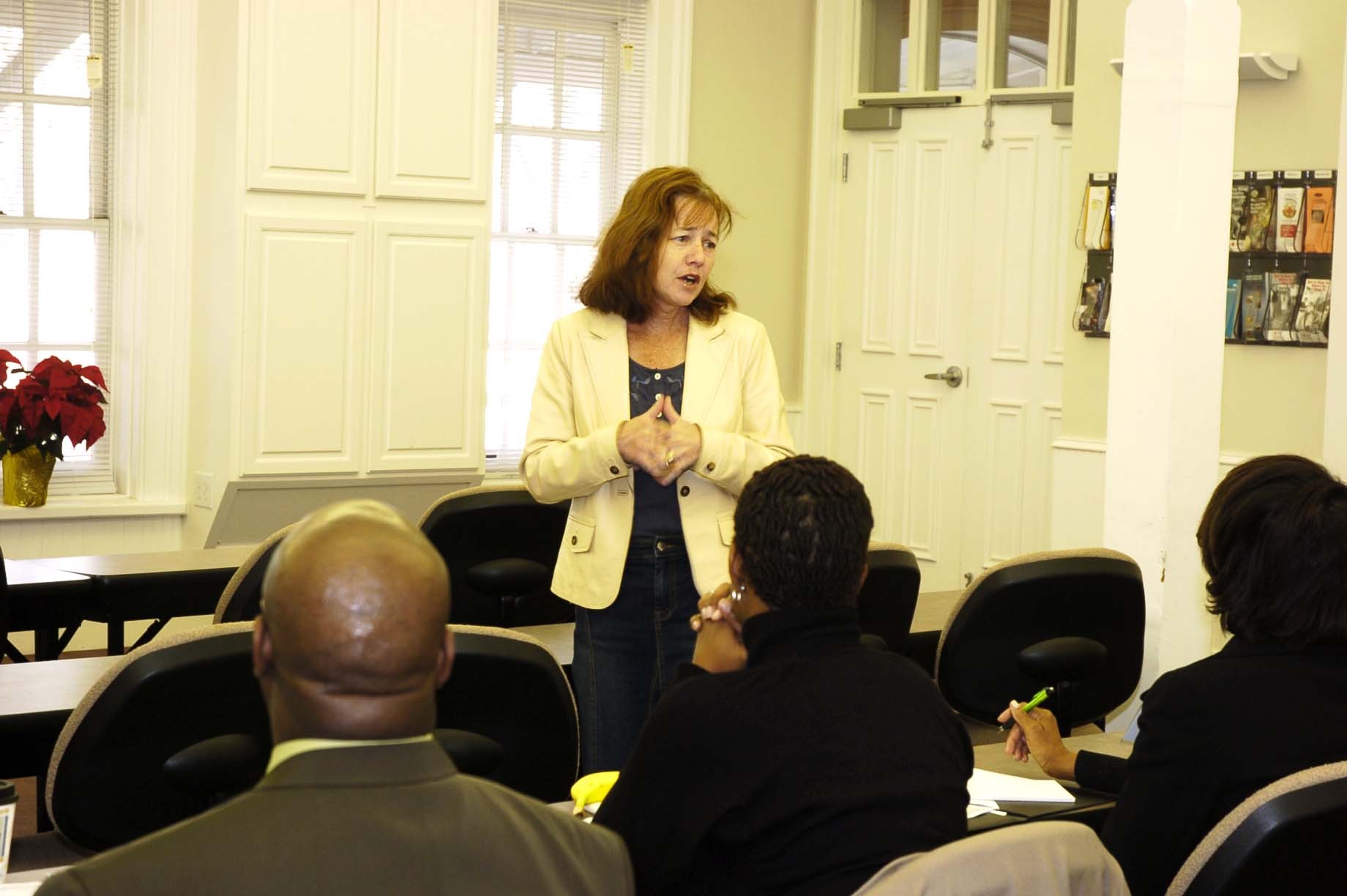They wore suits and skirts, shoes and boots, and sweaters and blouses.
But despite their difference in clothing, they all wore the uniform of strength, which is the uniform of someone willing to put nation's Families above their own.
Known for sacrificing much, servicemembers, Civilian employees and the Families who support them had the chance to focus on themselves and put forth ideas to better enhance their quality of life at the U.S. Army Garrison Army Family Action Plan conference held Dec. 1-3 at the Army Community Services building.
AFAP is an Army-wide program created to improve the Army quality of life. Through AFAP, all Soldiers, Civilian employees and Family members have a forum to raise issues and voice concerns to Army leadership.
Col. Deborah B. Grays, USAG commander, told participants on the first day that the work they accomplish has impact on the entire Army, reminding them that change begins at the local level.
In order to discover critical issues throughout Fort McPherson and Fort Gillem, Cynthia Giesecke, AFAP and Army Family Team Building coordinator, placed issue submission boxes in high traffic areas throughout both posts for two weeks in November.
Sixteen issues were gathered during this time, Giesecke said. During the course of the conference, she said the attendees would go through each of those issues and choose the top three to brief to Grays.
Any that can't be addressed at the local level will be forwarded to the U.S. Army Forces Command AFAP conference March 23, and could eventually make it all the way up to DA level.
"That's the hard task, whittling it down to three," Giesecke said. Giesecke said the criteria for selecting the issues were that the issue had to have a broad impact; be within control of a local command, DA or DoD to influence; be attainable; be measurable and feature a clear end product; and not duplicate an active, closed or unattainable issue from the past three years.
Due to the potential impact of issues, Giesecke said it was important that a large cross section of people be selected as delegates. "We have to have balance, a cross section that represents the total Army: enlisted, single parents, dual military, married, single, officer, warrant officer, retiree, surviving spouses, Family members and DA Civilians," she said.
The power of so many groups is evident in the success of AFAP, Grays said. During its 26-year history, 633 issues have been addressed, 107 legislative changes have been made, 154 Army policies have been amended and 173 improvements to programs and services have been made, she said. "This is real, tangible," Grays said. "It puts the finger on the pulse of the Army - the people."
Kimberly Webster, spouse of Lt. Gen. William Webster, Third Army/U.S. Army Central commanding general, had her own words of encouragement resulting from the changes she witnessed with the Army and AFAP.
"There are a lot of changes you can make," she said Last year, Fort McPherson and Fort Gillem helped raise four issues, Giesecke said. These included: the transferability of Post-9/11 GI Bill benefits to dependents, extending health care option program coverage, revising ancillary service charges to TRICARE Prime Soldiers, and changing the Exceptional Family Member Program screening process.
Giesecke said she wants those in the community to remain active and contribute, adding she hopes those who attended this year's AFAP "spread the word about the program and process." Meanwhile, there are other avenues people can pursue to make their voice heard, Giesecke said. "Become involved," Giesecke added, saying, "There's always ICE (Interactive Customer Evaluation) comments, town halls and Family readiness group committees."




Social Sharing